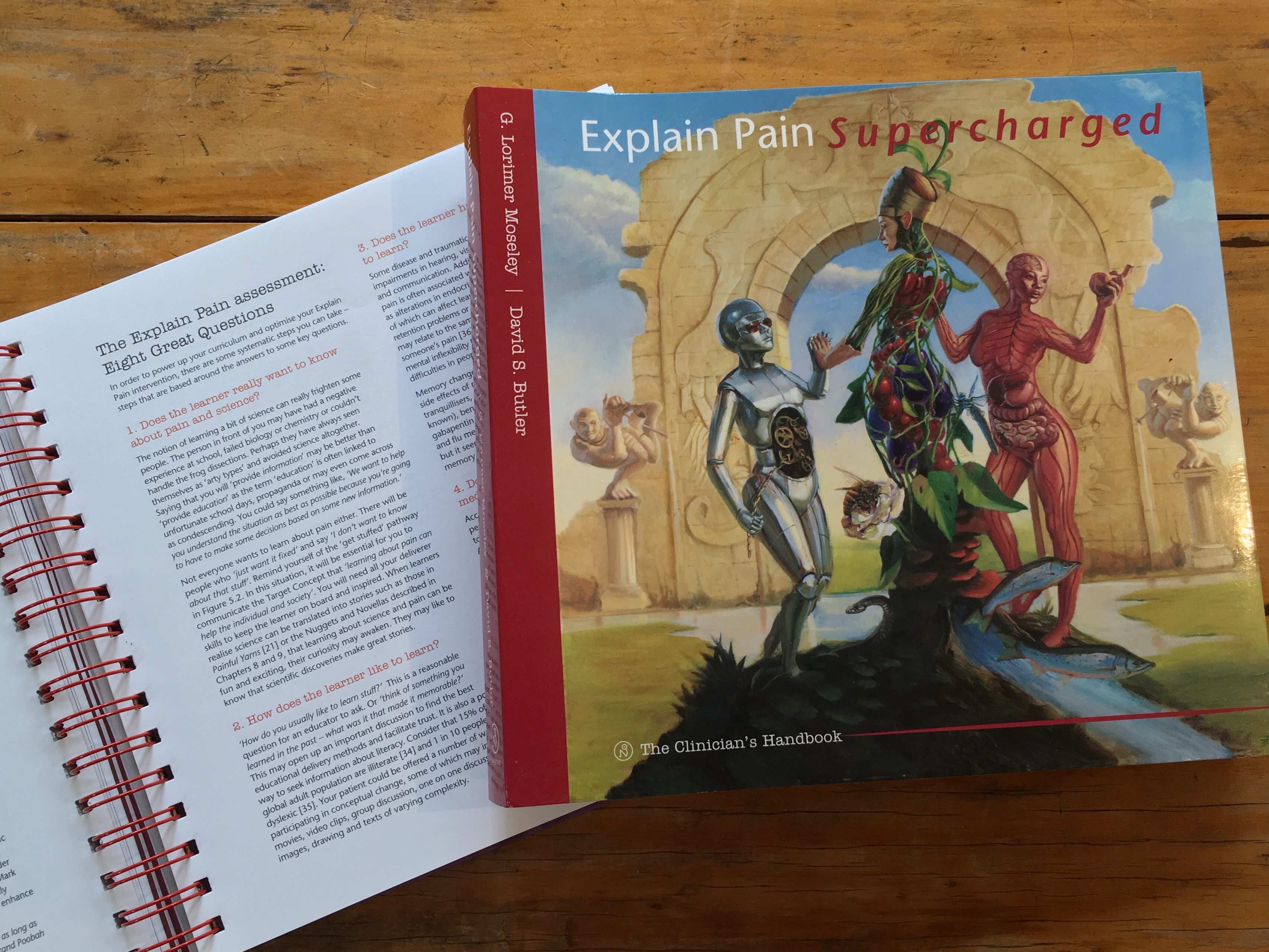
Happy NOI Year! For those of you heading back into clinical settings and considering another year of delivering high quality Explain Pain education, here is an important question that we think you should be asking all of your clients:
“How do you like to learn?”
Simple isn’t it! But this simple question (one of the Eight Great Questions in The Explain Pain Assessment*) can reveal so much. It’s a good way to open up a discussion about the best way to deliver educational messages and build some clinical trust. It can also be a polite way of asking about literacy. Asking How do you like to learn? as part of your assessment will help you decide how best to facilitate learning and conceptual change – one on one, reading material, video clips, images, drawing, group discussion…
While we’re here, how do you like to learn. Have you ever stopped to ask yourself? Can you think of a time when learning was fun and really effortless? What was it about that situation that made it memorable and learning easy? We’d love to hear your thoughts in the comments below so that we can adapt our education to best suit all of you!
-The NOI team

Really good question – my answer I’m dyslexic , have information printed on colour paper with drawings that show right anatomy .
Less talking more imitation from physio or group through excercise together with patient seem to helps remember excercise when home.
Learning new skills or movement through observation .
Miss interpreted information through audio/ listening – recap rather repeating give a clear message is crucial when ones learning style are different .
Hi Victoria
Thanks for sharing your thoughts and experiences. You highlight so beautifully the importance of asking this question.
Thank you also for raising another key idea in education – the recap or ‘self-explanation’. Again really simple, but an essential part of a good educational experience. Providing a recap using different words and asking a learner ‘what did you take away from that” and asking for a recap in their own words is easy, quick, and can prevent a learner and a teacher talking past one another.
Cheers
Tim
¿Para cuando cursos en Español?.
Felicidades por su trabajo
Thanks Laura! We don’t have any cursos en Español booked in at this stage, but keep an eye on our courses page http://www.noigroup.com/en/Courses as this will be where they appear.
Cheers
Tim
definitely stories , afterwards biological explanation and/or picture drawing =)
Thanks David – story telling and narrative are often underrated as clinical interventions, but they can the most memorable learning experiences.
Cheers
Tim
Podcasts! The recent boom in podcasts has enabled me to learn so many things in my own time. Driving, putting out the washing, cleaning the house are all really good quiet times for me to listen to podcasts. It’s time NOI produced their own podcasts! I’ve listened to many interviews of world class experts, people I would never get access to and learnt so much about so many varied topics.
I agree with Alicia – Podcasts have been wonderful on my commute to learn from some really fantastic clinicians. I enjoy listening to case studies and formulating my own impression and then listening to see how others will approach the same patient. It gives good insight for other ways to interview the patient (words are important), evaluate the patient and learn various treatment approaches . .
Podcasts and online learning modules! The occasional conference attendance is wonderful for learning but often really just a good chance to liaise with fellow clinicians. Having 24hr access to online learning is my preferred method.
Hi Alicia, Karen and Kris – we here ya! Podcasts are definitely in our thinking and planning – but with the plethora of podcasts out there already we want to ensure we deliver great content in interesting ways – watch this space!
So glad to hear it’s on the Noi agenda! I can’t recommend Esther Perel’s podcast Where Should We Begin highly enough. She manages to beautifully present the client therapist relationship. This series has given me profound insights.
Story telling is something I’ve been working on – I coach paddlesport and use metaphor/stories all the time and I’ve honed them down to the ones that work – in the last year I’ve transferred this to my clinical role and gradually I’m working out the ones people engage with and remember. I love it :). Love the NOIJAM posts – it gives me a little push in the right direction or reminds me of how I need to keep trying and developing and excited by the podcast idea. Thanks